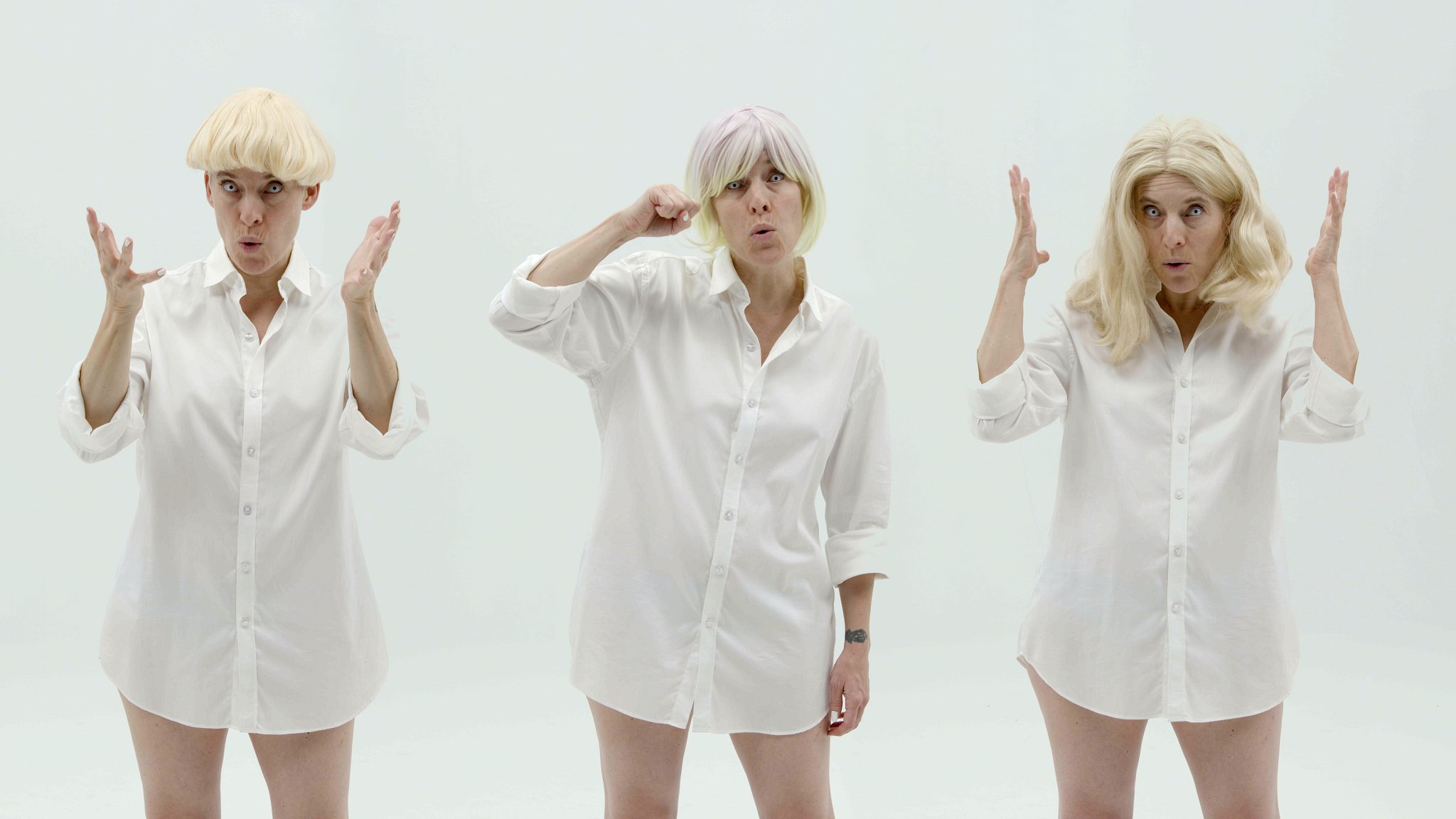The South African artist uses the lexicon of online performance to explore how racial caricatures are personified and perpetuated
Candice Breitz’s new videowork Whiteface takes the form of a series of found sound-clips to which Breitz lip-syncs while dressed in a white shirt and various blonde wigs. The lip-syncing, inevitably summoning the performativity of TikTok, is to sources that range from American comedian Bill Maher and Fox News’s Tucker Carlson to homemade social-media clips. They encompass a variety of statements on whiteness, including “It’s not a privilege to be white”. These range from alt-right ideological utterances to what Breitz (who is white), at the opening’s public interview, referred to as the pronouncements of “good whites” – those who believe they mean well, but still perpetuate racism.
Whiteface plays on the infamous theatrical caricature of ‘blackface’ of course. But it also references one of Breitz’s earliest works, Ghost Series (1994–96), in which she ‘whited out’ (or ‘Tippexed’) the faces and bodies of Black South African women found on postcards, dressed in tribal outfits. Ghost Series was motivated by the apartheid-era removal of the Black female body in the South African social landscape. Breitz is now, in a sense, coming full circle. She is painting the ‘white-faced’ presence into the picture: that is, far from the speechless nonpresence of ghosts, we have the white, ingrained, ideological presence personified or ‘whited in’.

As Breitz herself suggested in her interview at the show’s opening, the continual repetition of white ideology, in mainstream and social media, has reinforced the supposed ‘truth’ of the type of statements she is lip syncing. Breitz’s idea here is not unlike the Aristotelian notion that we learn social behaviour through acts of habituation and mimicry. The point that there is something wrong in the social media habituation is, slightly paradoxically, brought home by Breitz herself habitually repeating while in ‘whiteface’ lines like: “We can’t have an opinion, we can’t say anything anymore” and “I’m not a racist, some of my best friends are Black”.
Embedded in the work are the tropes of the ‘whiteface’ of the mime and the ‘blackface’ mockery of white men claiming to mimic Black minstrels. Breitz seems to be asking us just what kind of ‘truth’ or indoctrination is created by our performativity on social media. That is, does this performativity hold a mirror up to nature, or does it simply ingrain behaviour? Like much of Breitz’s work, Whiteface is suffused with a dramatic irony.
Whiteface at Goodman Gallery, Cape Town, 9 March – 22 April
